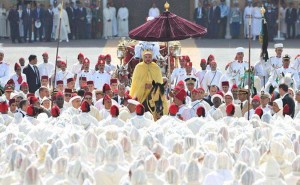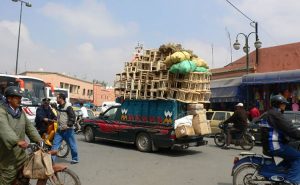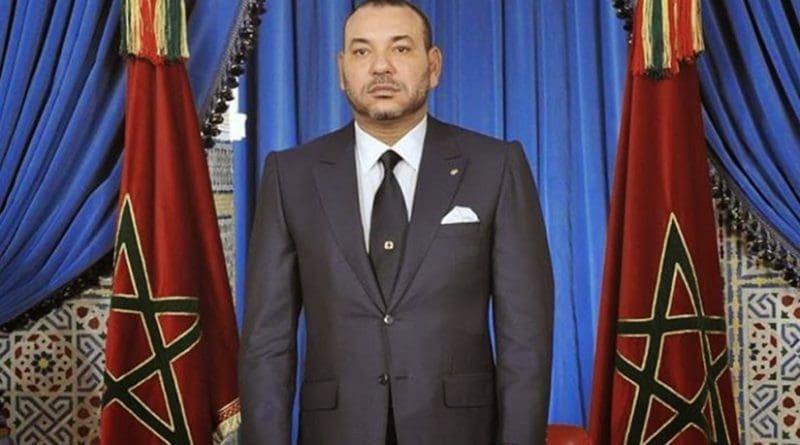Reforming Morocco Under Mohammed VI – Analysis
Morocco has historically represented one of the most moderate voices in the Arab and Muslim world. The first country to recognize the United States as an independent nation, Morocco has long been allied with the West and often serves as a bridge between Western countries and the MENA region. It is, in many ways, considerably more liberal than many Middle Eastern and North African countries – and yet, it was not until King Mohammed VI came into power in 1999 that the country began to make strides in instituting societal reforms that liberalize civil society and increase civil and human rights.
While the most radical of the reforms that have taken place under Mohammed VI are the substantial improvements in women’s rights, other extremely important and meaningful changes have occurred, including increased recognition of the Amazigh culture and language and a new and unprecedented commitment to international human rights standards.
Women Rights
Shortly after ascending to his father’s throne in 1999, King Mohammed VI gave a speech in which he asked:i
“how can society advance when the rights of women – who form half of it – are squandered and they are subjected to injustice, violence and marginalization despite the deference and fairness accorded to them by our true religion?”
While it would take four long years before the Mudawanna reform was achieved in 2003, this speech set a precedent for the King’s reign that had been absent from Moroccan society under his father, Hassan II. In recognizing the absence of women’s rights in his country, as well as acknowledging their importance, he not only foreshadowed the reform that would take place, but also challenged his people to begin thinking in this way. Reforming the family code was by no means a simple process.
Thanks to Mohammed VI’s efforts to democratize the political system through a parliament and its president who actually had some kind of a legitimate role, the four years between his calling for a new Moudawana and its realization were fraught with civil and political unrest. An intense ideological divide developed between the liberal, secular feminists who called for a family code in line with the relevant UN conventions and the Islamists, both male and female, who adamantly opposed this deviation from shari’a law and Islamic values as they saw them.
It was ultimately the 2003 terrorist attacks and society’s subsequent fear of Islamic extremism that led to the Moudawana’s rather radical content. Beyond the improvements for women that can be found in the new code – including changes in laws regarding marriage, divorce, child custody, alimony, inheritance, and many more – the reform succeeded in bringing women of all political and religious beliefs into civil society in order to voice their opinion about the laws that would so closely affect them.
Mohammed VI’s reforms to the Moudawana were completed in February of 2004, following immense opposition from Islamist groups. The new code raises the marriage age from 15 to 18, allows women to divorce by mutual consent, curbs the right of men to ask for divorce unilaterally, restricts polygamy, and replaces a wife’s duty of obedience with the concept of joint responsibility. Similar to the Instance d’Equité et de Reconciliation -IER- and reforms with human rights, the changes to the Moudawana did not go without criticism and the acknowledgment that there was still much to be done. However Mohammed VI’s reforms for family law have given women a number of rights often unseen in the Arab world.ii

This involvement of different women in the legal and political process is perhaps even more monumental than the laws contained in the new Moudawana.
Mohammed VI has also involved diversified politics at an even higher level by requiring 10% of members of parliament to be women. The King’s commitment to increasing the position of women in Moroccan society can be seen not only in the landmark Moudawana, but in the way he presents himself to society. The fact that Mohammed VI was the first ruler to introduce his wife to the public – or even allow her into public – was shocking to many Moroccans, and truly demonstrates the dramatic shift in attitude towards women that has occurred since the reign of Hassan II, as well as the King’s commitment to normalizing this shift for his people. As the first wife of a king to have a public role, Lalla Selma holds a great amount of power in the cultural conscience, if only symbolic.
Human rights
And women’s rights are not the only ones that have been pioneered by King Mohammed VI – largely as a response to the gross human rights violations perpetrated by his late father and the subsequent demands of his father’s former prisoners; an Equity and Reconciliation Commission (Instance Equité et Réconciliation-IER-) was established in January of 2004iii (“Truth and Reconciliation in Morocco.”) Though there is significant speculation surrounding the function this body serves – as the government has no obligation to adhere to its recommendations – the International Center for Transitional Justice asserts that:iv
“since 2006 the CCDH [Advisory Council on Human Rights] has made substantial progress in carrying out the IER’s [Equity and Reconciliation Committee] reparations program” (“Truth and Reconciliation in Morocco”).
Amazigh culture and identity
Overall, it appears that while important work remains to be done, the IER is undoubtedly a step in the right direction and demonstrates that the King is willing to make efforts in this area. In another move to diversify Moroccan society and represent all voices, the constitutional referendum of 2011 included the first ever official recognition of Amazigh culture and identity central to Morocco, as well as elevating Tamazight to official language status. While many critics believe that this constitution was essentially used to appease people without giving up any real power, this nod to the country’s Amazigh origins is monumental.
Not only is Morocco the first North African country to do so, but this acknowledgement of non-Arab and non-Muslim culture and heritage follows in the trend of Morocco departing from shari’a law, as in the Moudawana, and Islamist ideals of government. Perhaps this referendum did little to change the reality of life in Morocco, but it adds, little by little, to the openness and tolerance of the country. The theme of all of these societal reforms seems to be that they are monumental for Morocco, liberal for Morocco, and radical for Morocco.
Constitution
In 2011 following various street demonstrations and in the midst of the Arab uprisings occurring in the Middle East, Mohammed VI implemented a new constitution. The new constitution, according to Human Rights Watch:v
“articulates many rights, including freedom of expression, protections for people in custody, and a new right to challenge the constitutionality of existing laws in a high court”
While this sounds like excellent progress on paper, international human rights organization Human Rights Watch argues that the government has yet to adopt any legislation that would put these reforms into action. They also state that Morocco continues to enforce laws focusing on freedom of expression, including imprisonment for: vi
“defaming or insulting public officials or state institutions…and a speech that “harms” the monarchy.”
On the recognition of the Amazigh language and its elevation to an official status in the 2011 Constitution, Younes Abouyoub argues:vii
“Most Moroccans applaud—and rightly so—the bold decision of King Mohamed VI to include in the preamble of the newly proposed constitution the official recognition of Tamazight as a state language alongside Arabic, the first official acknowledgement of Amazigh (Berber) identity on a constitutional level in a North African country. In fact, this inclusion is what some analysts have speculated led to the overwhelming approval of the July 1 constitutional referendum; Thomson Reuters reported that 98.5 percent of the population voted in favor, with a 73 percent turnout of registered voters. Skeptics cast doubts over that figure, citing voting irregularities, and point out that the king’s play of the Berber identity card is no more than a bid to pass off a cosmetically new constitution while holding on to his monarchy. Those who are more cynical suggest that the consequences might be dire, and lead Morocco down the road to the Algerian model of tension between those of Arab and Berber origins”
A Last word
Morocco is a country in transition, and while many citizens feel the democratization is not moving swiftly enough, it is moving. And it is this movement which will be the legacy of King Mohammed VI – not that he changed everything, brought democracy or perfected human rights, but that he set the wheels in motion for others to add to the reforms he enacted.
On the Moroccan carefully-managed transition, Heba Saleh writes in The Financial Times of November23, 2015:viii
“Reforms initiated and controlled by King Mohammed to defuse protests in the wake of revolts in Tunisia, Egypt and Libya have allowed Morocco to escape the upheavals that have troubled other countries in the region, blighting economies and even leading to civil war. Stability has been helped by a process of cautious co-operation between the monarch and the moderate Islamists of the PJD headed by Abdelilah Benkirane, the prime minister, who has led a coalition government since elections in 2011. The poll came after the adoption of a constitution that requires the king to choose the prime minister from the largest party in parliament.”
Is Morocco a liberal country?

While King Mohammed VI’s arrival into power has helped to make real strides in terms of societal reform within Morocco, these reforms have not created what could be described as an entirely “liberal” society. Advancements have been made in terms of both human and women’s rights, which are incredibly important within the context of the Arab world today. Despite this fact Morocco still faces a wide range of criticism in regards to not only these reforms, but also the laws it continues to enforce regarding freedom of expression and the powers of the monarchy.
Endnotes:
i. http://news.bbc.co.uk/2/hi/africa/3183248.stm
ii. https://tavaana.org/en/content/moudawana-peaceful-revolution-moroccan-women
iii. http://democratie.francophonie.org/IMG/pdf/Declaration_de_l_intance_equite_et_reconciliation.pdf
iv. http://www.ictj.org/sites/default/files/ICTJ-Morocco-TRC-2009-English.pdf
v. https://www.hrw.org/news/2013/11/20/us-obama-should-press-moroccos-king-reforms
vi. Op.cit. http://carnegieendowment.org/2011/07/06/morocco-reforming-constitution-fragmentingidentities/fmy9
vii.
viii. https://www.ft.com/content/a713eabc-6e98-11e5-8171-ba1968cf791a
Sources:
Zakia, S. 2011. Between Feminism and Islam: Human Rights and Sharia Law in Morocco. University of Minnesota Press.
Fatima Sadiqi, 2010, from ‘Women’s Rights in the Middle East and North Africa: Progress Amid Resistance’, ed. Sanja Kelly and Julia Breslin, Freedom House, New York
Castillejo, C. and Helen Tilley. Marc 2015. The road to reform: Women’s political voice in Morocco. March 2015, Case Study Report, Overseas Development Institute (ODI)
Prettitore, P. April 2014. Ten Years After Morocco’s Family Code Reforms: Are Gender Gaps Closing? The World Bank
Moudawana: A Peaceful Revolution for Moroccan Women, Tavaana

